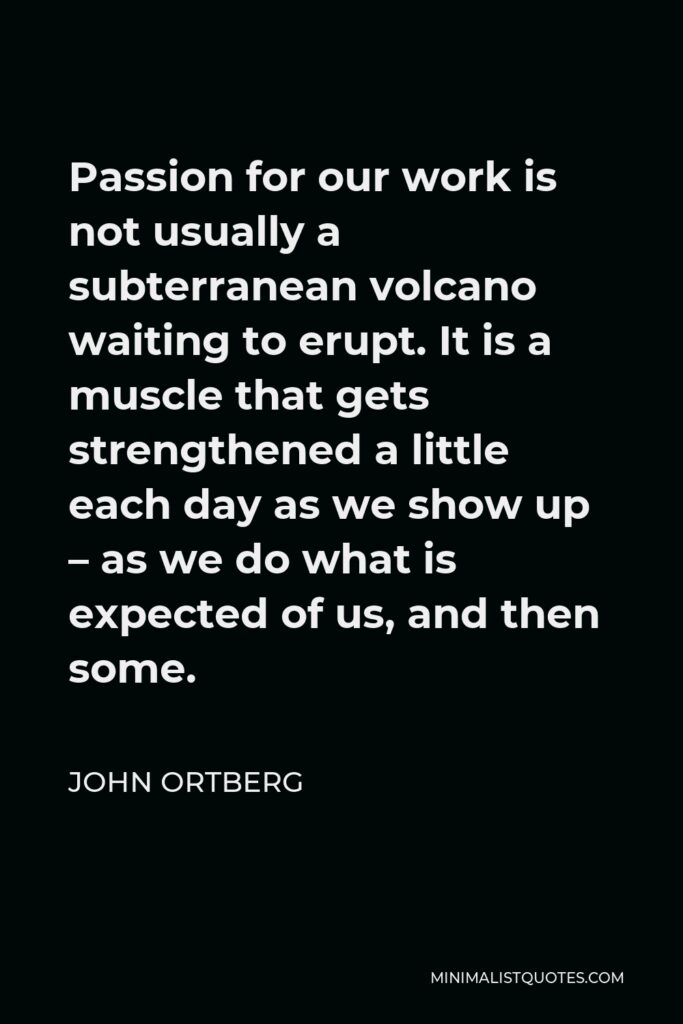Habits eat good intentions for breakfast.
JOHN ORTBERGRelated Topics
Anand Thakur



Habits eat good intentions for breakfast.
JOHN ORTBERG

A bad sermon is like a car wreck – everyone slows down to see what happened.
JOHN ORTBERG

The Holy Spirit will lead you to be with people as Jesus would be with them if He were in your place.
JOHN ORTBERG

Gratitude is the ability to experience life as a gift. It liberates us from the prison of self-preoccupation.
JOHN ORTBERG

At the heart of Christian faith is the story of Jesus death and resurrection.
JOHN ORTBERG

The decision to grow always involves a choice between risk and comfort. This means that to be a follower of Jesus, you must renounce comfort as the ultimate value of your life.
JOHN ORTBERG

Peace does not lie in getting God to give me other circumstances. Peace lies in finding God in these circumstances.
JOHN ORTBERG

Who you become while you’re waiting is as important as what you’re waiting for.
JOHN ORTBERG

Waiting on the Lord is a confident, disciplined, expectant, active, sometimes painful clinging to God.
JOHN ORTBERG

Both hope and pessimism are deeply contagious. And no one is more infectious than a leader.
JOHN ORTBERG

Having faith does not mean never having doubts or questions. It does mean remaining obedient.
JOHN ORTBERG

What repeatedly enters your mind and occupies your mind, eventually shapes your mind, and will ultimately express itself in what you do and who you become.
JOHN ORTBERG

Failure does not shape you; the way you respond to failure shapes you.
JOHN ORTBERG

It only makes sense to ask God for guidance in the context of a life committed to “seeking first the kingdom.”
JOHN ORTBERG

Ever console or scold people hurt in human relationships that satisfaction comes from God alone? Stop. Adam’s fellowship with God was perfect, and God Himself declared Adam needed other humans.
JOHN ORTBERG

Passion for our work is not usually a subterranean volcano waiting to erupt. It is a muscle that gets strengthened a little each day as we show up – as we do what is expected of us, and then some.
JOHN ORTBERG